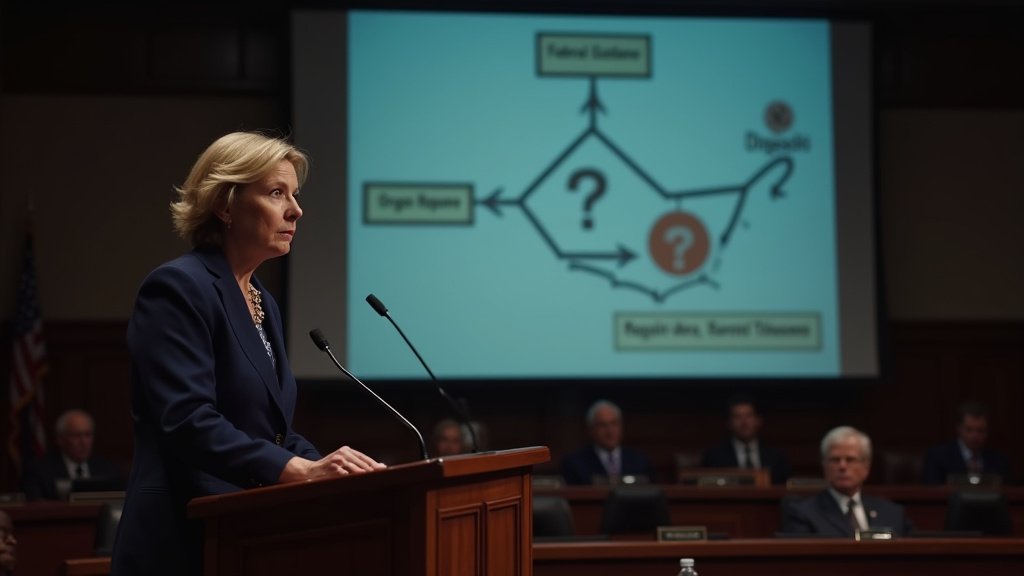Oregon lawmakers are now weighing potential legislative actions in response to recent disruptions and frustrations surrounding access to COVID-19 vaccines. The move comes after a period of confusion and delays in September 2025, prompting state officials and legislators to examine how Oregon can better ensure consistent and timely access to vital public health tools.
Federal Uncertainty Fuels Vaccine Access Confusion in Oregon
The recent challenges in vaccine accessibility in Oregon were largely precipitated by shifts in federal guidance and policy. In late August 2025, the U.S. Food and Drug Administration (FDA) announced tightened restrictions on the eligibility for the updated COVID-19 vaccine, limiting its use to individuals aged 65 and older or those with underlying health conditions that pose a risk of severe illness. This narrower eligibility criteria marked a significant departure from previous years when the vaccine was more widely available.
Compounding the issue, U.S. Health and Human Services Secretary Robert F. Kennedy Jr. had, in June, controversially fired all members of the Centers for Disease Control and Prevention’s (CDC) key vaccine advisory panel and appointed individuals whose views on vaccine safety sometimes conflicted with mainstream medical organizations. This action created a vacuum of clear, trusted federal guidance, leaving states and healthcare providers uncertain about the recommended course for vaccine administration. The federal advisory panel was slated to meet on September 18-19, 2025, to discuss the updated vaccine, but the preceding weeks were marked by a lack of definitive national direction.
This federal uncertainty directly impacted Oregon. Throughout early September, pharmacists in the state reported turning away Oregonians who sought the vaccine, anticipating guidance that ultimately proved slow to materialize or unclear. Many residents expressed frustration, with some resorting to traveling to neighboring Washington state, where the health department had issued a standing order allowing pharmacists and nurses to administer COVID-19 vaccines to individuals aged six months and older without a doctor’s prescription.
Oregon’s Response: Alliance, Agency Directives, and Public Frustration
In response to the shifting federal landscape and the growing public concern, Oregon, along with California and Washington, formed the West Coast Health Alliance in early September 2025. This alliance aimed to provide evidence-based, unified recommendations for their residents and safeguard vaccine access against politically influenced federal policies. Governor Tina Kotek, a proponent of the alliance, acknowledged the widespread frustration, describing the situation as a “patchwork-like environment for something as basic as vaccine access.”
Following the formation of the alliance and in the wake of public outcry, Governor Kotek directed state agencies to take action. Within weeks, five state agencies, including those licensing pharmacists, nurses, and doctors, alongside regulators of insurers, announced measures to ensure the COVID-19 vaccine would be covered by insurance and made available to those seeking it. Pharmacists were authorized to administer the vaccine without a prescription, a move that aimed to streamline access and alleviate the cumbersome process that had characterized the preceding weeks.
However, replicating Washington’s immediate implementation of a standing order proved challenging for Oregon. State law did not grant the Oregon Health Authority the immediate authority to issue such broad orders, necessitating a more deliberative process. The Oregon Board of Pharmacy had also initially faced an “impossible timeline” to adapt its rules for pharmacist administration without a prescription, further contributing to the delays. Despite these efforts, the news coverage highlighted a public sentiment that Oregon’s response was slower and less efficient than in some other states.
Lawmakers Seek Proactive Solutions to Prevent Future Vaccine Delays
The recent disruptions have prompted a closer look from Oregon’s state lawmakers. Some legislators are now questioning whether the state possessed sufficient tools and frameworks to respond more rapidly and proactively to such federal policy shifts and subsequent access issues. State Senator Lisa Reynolds, chair of the Senate Committee on Early Childhood and Behavioral Health, commented on the cumbersome nature of the process, emphasizing the need for the state to be “not just responsive but even more proactive in what we recommend.”
These concerns suggest a growing appetite for legislative reform. Discussions are reportedly underway regarding potential measures that could be introduced in future legislative sessions, possibly in 2026 or 2027, or even through a special session if deemed necessary. The goal would be to equip the state with more robust mechanisms to ensure vaccine availability and accessibility, learning from the recent challenges.
Legislators are looking at ways to streamline the process for authorizing vaccine administration by healthcare professionals and to establish clearer protocols that can be activated swiftly in response to evolving public health needs, regardless of federal directive fluctuations. The aim is to build a system that is resilient and efficient, preventing future situations where residents face difficulties in accessing critical health interventions.
The Road Ahead: Ensuring Seamless Access to Public Health Tools
While the immediate issues surrounding the fall 2025 COVID-19 vaccine rollout in Oregon have been addressed through agency actions and the formation of the West Coast Health Alliance, the experience has underscored vulnerabilities in the state’s public health infrastructure. The period of confusion and delayed access has served as a stark reminder of the importance of predictable and accessible vaccination programs.
As lawmakers begin to consider future legislative actions, the focus is on creating a more predictable and less cumbersome pathway for vaccine access. By examining the recent past and learning from both the state’s and other states’ responses, Oregon aims to fortify its capacity to respond to future public health challenges, ensuring that its residents can rely on timely and equitable access to vaccines and other essential health services. This news highlights the ongoing effort to adapt and improve public health strategies in a complex and evolving landscape.




